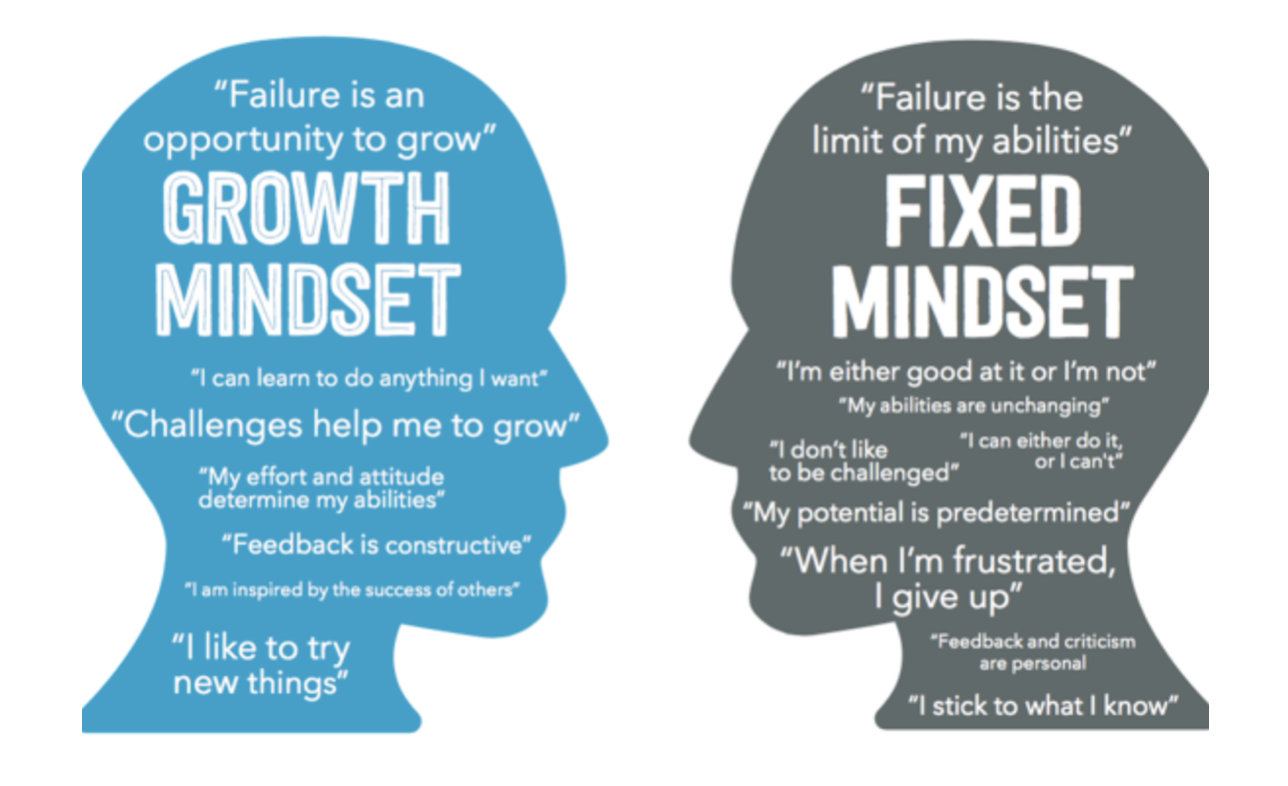Carol Dweck, the professor of psychology at Standford, has spent over 40-years researching and conducting numerous studies to attempt to understand how we face and confront challenges in life and how our mindset plays a crucial role in success or failure. According to Dweck, individuals can be placed on a continuum according to their views and beliefs of where ability comes from. This continuum has a growth mindset on the one side and fixed mindset on the other.
Those with a growth mindset show greater resilience and the ability to bounce back from setbacks. For example, in sport, people who exhibit a growth mindset are better able to handle challenges, take criticism and problem solve than those with a fixed mindset, who are typically more likely to avoid the challenge altogether, blame other factors for failure and ultimately give up.
Those with a fixed mindset have a need for approval as explained by Dweck, “Every situation calls for a confirmation of their intelligence, personality or character. Every situation is evaluated; Will I succeed or fail? Will I look smart or dumb? Will I be accepted or rejected? They are seeking constant validation for all areas of their lives.”
Whereas, those with a growth mindset have a hunger for learning and a desire to work hard to get results. There is a love of the process around a task or challenge sometimes even more so than the end result. With a growth mindset, people see failure as feedback and challenges as an opportunity to learn and grow.

Dweck has dedicated a large part of her career to numerous studies to begin to theorise and understand how growth or fixed mindset traits are grown and developed. What some of the findings are showing is the way children get praised has a huge influence. In a repeated study over several decades, children that were praised for their intelligence and talent for solving a problem were far more likely to exhibit fixed mindset characteristics in future challenges. Whereas children that were praised on the process, the effort, their strategies, their focus, their perseverance showed vastly improved growth mindset traits for future challenges. This form of praise produced kids that were hardy and resilient later down the line.
So how can we relate these amazing findings to our own lives and look to cultivate more of a growth mindset in all we do? Language and the way it is used in regard to our belief systems and behaviours is immensely powerful. The language we hear from others plays a crucial role to our identity, but what is of higher value and importance is the language we use ourselves to tell our own story. In sports, this is often referred to as our inner voice. First and foremost, we need to work on becoming more aware of our inner voice and the tone and words we use to describe challenges and obstacles to ourselves. Once awareness of our inner voice takes place this is 60% of the problem solved. Awareness is a fundamental tool that needs to be practised and developed.
Professor of psychology at Santa Clara University, Shauna Shapiro talks about the brain and the strengthening of natural pathways, synapses and ultimately our identity in this wonderful saying: “What we practise grows stronger”. If we practise judgement, we grow judgement. If we practise impatience, we grow impatience. If we practise doubt and fear, we grow doubt and fear. This is what our inner voice is doing. We are strengthening these pathways in the brain when the language we use is of this negative nature.
Try and make it your goal to make awareness of your inner voice your first port of call. Once awareness of the inner voice is more present then begin to reframe the way you speak to yourself. Practice traits and behaviours of growth mindset people, and like anything, with time and practise we form strong and permanent habits.
In closing, a tool to help reframe your inner voice using 2 simple words: YET and GET.
Let me explain, if you are struggling to do something and your inner voice has made its mind up, add the word YET to the end of the sentence, for example;
- I am not going to reach my targets / I am not going to reach my targets YET
- I have no idea how to make this sale / I have no idea how to make this sale YET
- I cannot beat this opponent / I cannot beat this opponent YET
Secondly, if there is a sentence you tell yourself that has the word have in it, take a moment and replace it with the word GET, for example;
- I have to attend this meeting / I GET to attend this meeting
- I have to call 10 clients today / I GET to call 10 clients today
- I have to go to the shops and do chores after work / I GET to go to the shops and do chores after work
Think of how lucky you are and how many less fortunate people in the world would love to GET to do the things that you deem you have to do?!
Observe the below image of phrases and sentences that are attributed to the two mindsets and ideally you can begin to reframe these negative inner dialogues.
Here are some great playlists on the site that talk about mindsets within the squash context:
Jesse Engelbrecht
Sign up to the SquashSkills newsletter
Get world class coaching tips, straight to your inbox!